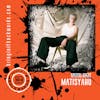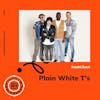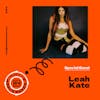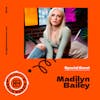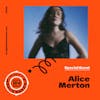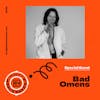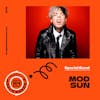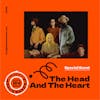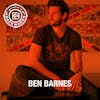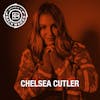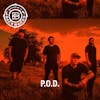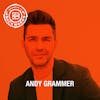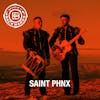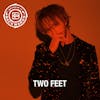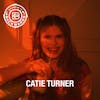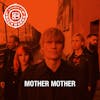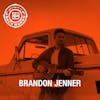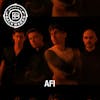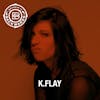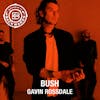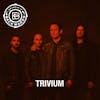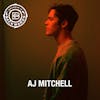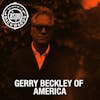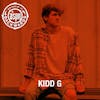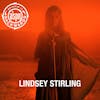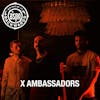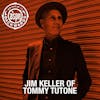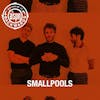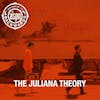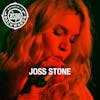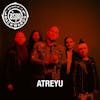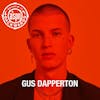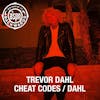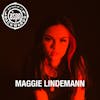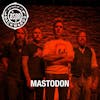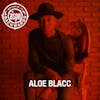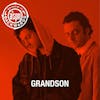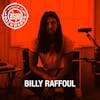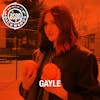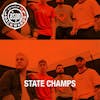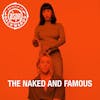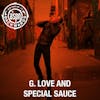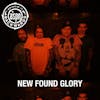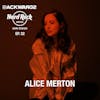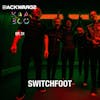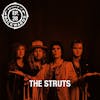Interview with Cheri Moon (SnookNuk)
We had the pleasure of interviewing Cheri Moon over Zoom video!
Cheri Moon has been at the forefront of the music scene for most of her life and is not slowing down anytime soon. The singer/songwriter and actress recently re-released her dance club...
We had the pleasure of interviewing Cheri Moon over Zoom video!
Cheri Moon has been at the forefront of the music scene for most of her life and is not slowing down anytime soon. The singer/songwriter and actress recently re-released her dance club hit "House Arrest" mixes with accompanying music video and celebrates her first-ever Grammy nomination under her children’s performer alias ‘Snooknuk’ for her work with “All One Tribe” and their nominated single “We’re All The Same” (distributed by Bob Marley/Tuff Gong International).
Born and raised in the music capital of Memphis, TN, Cheri began singing Gospel with her family choir at just 8-years old. Her musical ambitions eventually drove her to the New York club scene for 10 years, where she began performing regularly at the historic CBGB’s and Tribeca Grand Club. Her songwriting skills earned her a publishing contract with Producers Timbaland and Jimmy Douglass. Since then, songs from her catalog have been licensed for numerous national commercials and TV shows – including popular soap operas like “All My Children,” “The Young and the Restless,” and many HBO shows. Additionally, a few of her songs co-written with British star Roisin Murphy (Moloko) were released by EMI Europe on his acclaimed album “OverPowered”. Cheri also co-wrote the epic ballad “Great Escape” for Kevin Rudolf, and has co-written songs with The Scipt’s lead singer Danny O’Donoghue.
Capturing music lovers' attention around the world, Cheri signed to Universal Republic UK. By 2010, she had three smash hits in the clubs including “Ships in the Night” (#4 on the Music Week Club Charts), “House Arrest” (#1 on the DMC World Charts & #2 on the Music Week Club/Commercial Charts), and “One More Crazy Summer”One More Crazy Summer” (#2 on the Music Week Club Charts). Over the years Cheri has worked with legendary artists such as Timbaland, The Script and Missy Elliot.
Not only known for her popular dance hits, Cheri is also a highly regarded artist in the Family Music Community and as a Voice-Over Artist. She has become well-known for her enchanting children's songs released under the artist name ‘SnookNuk’. She was recently included in social justice musician Fyütch’s "Black Women in History", which reached #1 on the Sirius Radio Kids Music Charts.
We want to hear from you! Please email Tera@BringinitBackwards.com.
www.BringinitBackwards.com
#podcast #interview #bringinbackpod #CheriMoon #SnookNuk #NewMusic #zoom
Listen & Subscribe to BiB
https://www.bringinitbackwards.com/follow/
Follow our podcast on Instagram and Twitter!
https://www.facebook.com/groups/bringinbackpod
We'd love to see you join our BiB Facebook Group.
Hey kiddo. How is the hell to learn anything? 0 (43s): What is going on? It is Adam. Welcome back to bringing it backwards. A podcast where both legendary and rising artists tell their own personal stories of how they achieve stardom. On this episode, we had a chance to hang out with Sherry moon, AKA snip nook, over zoom video share. I was born and raised in Memphis, Tennessee, and she talks about how she got into music. Grew up in the church, sing gospel and the church choir thought she was going to go to school to be a doctor. When she graduated high school, she went to college near Nashville. And one of her friends that she met in college was from New York city. And she took her to New York on, on a trip, just like, you know, one of the holidays. They went to New York. 1 (1m 23s): She absolutely fell in love with it, decided to drop everything and come to New York. She moves to New York on the train when she got to New York on her way, there she meets a group of girls, ends up joining this girl group and that's where her music career really started. She talked about working with Timberland. Having records of hers, get picked up by different artists in the UK and having them remix the songs and how she started a career in children's music. We talk all about her new project, which is nominated for a Grammy this year, her first ever Grammy nomination, best children's music album with her group called one tribe collective. So she tells us all about that project, her song on the record and being nominated for a Grammy award. 1 (2m 8s): You can watch our interview with Sherry on our Facebook page and YouTube channel at bringing it backwards. It'd be awesome if you subscribe to our channel like us on Facebook and follow us on Instagram, Twitter, and tic talk at bringing back pod. And if you're listening to this on either Spotify or apple music, it'd be awesome. If you follow us there as well and hook us up with a five star review, 5 (2m 32s): We'd appreciate your support. If you follow and subscribe to our podcasts, wherever you listen to podcasts, 1 (2m 38s): We're bringing it backwards with Sheri moon, AKA snip nook. Well, I appreciate you doing this. This podcast is about you and your journey and music. And I want to talk to you obviously about the Grammy nominated record. 6 (2m 52s): Yes. Thank you. Thank you for having me and taking the time out actually for 1 (2m 55s): Oh yeah, of course. Of course. I did see her from, are you from Memphis? Born and raised in 6 (2m 59s): Originally born and raised in Memphis. A Southern girl? 1 (3m 3s): Yeah. Okay. I just, I was telling Brandon here a second ago that my family and I I'm originally from San Diego and we just moved to Nashville like less than a year ago in February. 6 (3m 12s): Wow. Wow. Why did you choose Nashville? I mean, it's a fantastic city, but I'm always curious. 1 (3m 19s): We've heard a bunch of good things actually through this podcast and met a bunch of people that were like kept talking about Nashville. I'm like, huh? 6 (3m 25s): Is 1 (3m 26s): Pandemic there's school open in Nashville. It's let's see what this is about. 6 (3m 30s): Yeah. Well it's a great city. It's beautiful. And they've done so much to it in the last few years. It's and it's just really thriving, especially in the music industry. 1 (3m 40s): Oh yeah. I moved here thinking it was a country town and no, I mean, I mean obviously gas there's countries, but not to the, I thought it was like only country music, but it's not, and there's all different genres are being created here, which is amazing. Yeah. 6 (3m 53s): Ah, I mean, it has really diversified in like the last 10 years I would say, has really come along. I mean, when I was there, when I was in Tennessee, it was pretty much country, just straight, You know? And then I went to college actually 40 minutes from Nashville. So I spent a lot of time driving from school with friends to go out and stuff like that and Nashville and it was nothing like it is today. 1 (4m 19s): Middle Tennessee. 6 (4m 20s): No, I went to Austin. Peay state university in Clarksville, Tennessee. 1 (4m 24s): Oh, okay. 6 (4m 25s): A lot of my friends, a lot of my friends chose middle state, but I middle Tennessee, but I didn't. Yeah. 1 (4m 30s): Okay. Yeah. Just curious. That's the only one I can think of off the top of my head aside from like Vanderbilt and maybe another one, but you said 40 minutes outside. So I was like, oh, maybe it's Murphysboro. 6 (4m 40s): Oh, well see again. I had another, I had friend that went to Murfreesboro as well. 1 (4m 45s): Well that's I think that's where middle Tennessee university is. 6 (4m 49s): Isn't there like a, there's a community college though. They are something, 1 (4m 53s): Oh, maybe, I don't know. I've only driven by the college and I'm like, oh, that's where middle Tennessee university is. But when you sit out 40 minutes away, I figured maybe it was there. So obviously don't know a whole lot. 6 (5m 5s): Yeah. Well you're going to learn, but like Clarksville. Yeah. It was about fourth usually I guess in the evening it was about, cause we always drove up in the, in the evenings to go out. So it was, you know, 40, 40. It was under an hour. Yeah. 1 (5m 19s): Well we're about to have a tornado here, so you're not missing that much. 6 (5m 24s): I don't miss those. We had a lot of those in Memphis growing up. I tell my kids nowadays, too. I'm like, you're so lucky. You're so lucky. Cause they like, oh weird. Cause I live in LA now and they go, oh, what about the earthquakes and this and that. I'm like, don't happen nearly as much. Like you have nothing to worry about. 1 (5m 41s): The last person. I just interviewed somebody a little while ago that was in LA. And they lived in, they were in Nashville when the Mo that big one hit right before then COVID happened in the bottom half. Like it was all this horrible stuff happened in Nashville, like back to back director back. And then she's like, yeah, that's why I didn't want to move there. And I moved here, not really realizing how many warnings are tornado warnings. I came from California when I was like, oh my God, it's going to be an earthquake. I was like, I lived there for 37 years. I experienced them, but I never saw, I mean, luckily I wasn't in it, you know, San Francisco when the bridge fell or bridge, when that big one hit. But I mean, they're so few and far between that. It's not like here I've been here for less than a year and I've, we've already experienced like so many tornadoes, like watching mornings. 1 (6m 27s): It's, it's a different, 6 (6m 28s): It's so crazy. I tell, you know, I can remember quite a few that were really scary when I was younger, you know, and I always like explain them and they go really? That happened. I'm like, yeah, it did like seriously. 1 (6m 40s): Like I could hear the wind, like, you know, Oh my gosh, 6 (6m 48s): I do not miss that. I don't think I would move back. And fortunately, 1 (6m 53s): Well, so Memphis though, you know, mute, there's another huge music city here and Tennessee, tell me about living there. 6 (7m 1s): Well, I mean, Memphis is just amazing on the music front because there's so many, it's not just, it's, it's, it's always been very diverse. I mean, I grew up starting with the gospel. You know, my, my, my family was heavy into gospel. We were going to church many times a week and we had our own gospel choir and all that stuff. But you know, it's really heavy into also jazz and blues and you know, all of that. And that's just amazing to, to be around and all the, the jazz and blues clubs downtown and bill street and, you know, it was just incredible. It was really rich with a music culture to grow up with. So I am really grateful that I actually had that experience growing up because honestly it has really paved what my life is like now it's, it's, it's created me as a person and I feel like I owe it to what I do now and all my talents and everything I get up to, you know? 6 (7m 57s): So it's, it's just, it's an incredible town. And as far as like a lot of history and all of that stuff, I mean, they, they've kind of done a lot to Memphis too. Not as much as Nashville, Nashville has come along quite a bit more than Memphis, but you know, I mean, Memphis is a great, they also, you know, nowadays, you know, really rich with the hip hop, the hip hop culture as well, you know, so there's a lot, there's a lot to be said for that city and you know, Nashville as well. So it's, it's, it's got a lot of great culture there. So 1 (8m 32s): When we drove here, when we were moving here, we stayed in Memphis. It was, I thought it was sitter cool with town. I mean, you come over that bridge from Arkansas, Memphis, Arkansas, and then now you're in Memphis, Tennessee. I was like, what is that? 6 (8m 46s): And you're like, downtown, you see the pyramid island. Yeah. 1 (8m 51s): And over the Mississippi river, I mean, it's just, it was really cool. 6 (8m 55s): Yeah, it is. It is. And you can feel like I, I feel different when I'm there for sure. And I feel like, Hey 0 (9m 2s): Kiddo, how was the hell to learn anything? 2 (9m 4s): Yeah. That ripping power induces, spontaneous joy, 3 (9m 8s): The icon pass lets you do you@fiftydestinationsworldwidefromtwofortynineadultdropinfornextwinternowandsaveiconpass.com. 7 (9m 18s): The sun is shining. Flowers are blooming. Birds are singing and everything seems fresh and new. It's the best time of the year. It's time for spring savings at your local public store. Pick up a spring savings coupon book from the public's information center at the store's entrance or ask customer service for a copy. You can save over $90 on your favorite brands, including GSK Energizer, Colgate Palmolive, Kimberly Clark had more, but hurry, the sale only lasts through April 15th, happy spring savings from Publix. 6 (9m 48s): Wow. There's just, there, there is a lot to learn because there is so much history there, you know? So I do kinda miss that. I mean, now that I'm talking about, I'm like, oh, I got to kind of, 1 (10m 1s): I'm not trying to convince you to move back. 6 (10m 4s): I'm like reminisce and going, oh, maybe I could 1 (10m 9s): Get off the call. You're like, hi girls, we're moving. 6 (10m 14s): Right. 1 (10m 15s): So you grew up in the church. Was that where you got kind of into music, was through singing the choir and gospel choir and stuff? 6 (10m 23s): My family, I mean, everybody, my family is musical in some way. If they don't seem vocally, then they play an instrument. You know? So, you know, we went to, we were again being, you know, growing up, growing up in the south, going to high schools, the high schools down there were, were actually really great with music. You know, we had marching bands and you know, we used to play instruments and read music and all of that stuff. Not a lot of that happens nowadays, which I'm a little sad about because I wish that my kids could experience that. I think some of the schools, maybe in the Midwest, in the south, maybe still have a lot of those programs inside the schools, but not so much, you know, up north, you know? 6 (11m 6s): And, and so it's a little sad to know that they won't have that similar experience that I had. That was so amazing. But yeah, you know, I was in the marching band, I played the clarinet And then, you know, I played the violin for a little bit. I mean, I, I didn't stick with it with it, you know, maybe more than a few years, but still I got to have those experiences playing at the basketball games and the football games and those scrimmages and all that stuff. But anyway, my, yeah, so my family, someone always, someone played the drums, someone played the guitar, someone was on the trumpet, you know, and then, you know, we had the singers and the harmonizers and so we were always, if we weren't out singing somewhere, we were singing in the house, you know? 6 (11m 51s): So it was, we were, we were very musical. 1 (11m 55s): And did you go through high? I mean, you said you're in the marching band and bands like that, but did you then pursue music outside after high school? 6 (12m 4s): I didn't initially know. I, because you know, again, let me not again, cause I didn't say this, but you get a little kind of limited in your thinking. Sometimes when you come from smaller towns, because you, you have these music idols and these entertainment gods that you look up to and you listen to and so on and so forth, but no one really teaches you how the road to success and the music industry in Memphis. You know what I mean? Like, but not teaching that in school, they're teaching you whether you want to be a doctor or a lawyer or, you know, the most common, you know, careers. No, one's really explaining to you how to get into the music industry, how to be an actress, how to what's a voiceover artists, you know, to all of these things you don't know about. 6 (12m 54s): So though I had the passion to do it. I didn't know how to do it. And yeah, so I, I started down a road of thinking I was gonna be a adopt. I was going to be a gynecologist. So I was starting the nursing, you know, medical program to Austin P thinking that I'm going to do this. And yeah. So until I met a girlfriend at school and she had family in New York and she used to go visit every summer or something. And I was like, New York, what's that, You know, she's like explaining all this stuff, everything they do. 6 (13m 36s): And I'm like, oh man, I want to go. And she was like, well, you should come with me one time. And so I remember being so excited, you know, I'd never been on an airplane, you know, I'd never really been outside of Memphis necessarily other than going to college and maybe Nashville a few times. So it was just like, wow, I'm going to New York suddenly. And I remember when we bought our train ticket from no, actually we bought our Southwest tick wa our Southwest airplane ticket from, from Nashville to, I think it was Pennsylvania, Philadelphia, because they didn't go all the way to New York. 1 (14m 12s): Oh, yeah. Had to take like the train or something 6 (14m 15s): From, from Philadelphia. It's a Penn station in New York. So that was the roots and yeah, so that was my first trip. And then I knew right away, I knew that I wanted to be in New York after that. Like that was it for me. I mean, I was, I was there literally two weeks later, like a couple of like two, three weeks max, I went back to Clarksville, wrapped up everything. I was like, okay. And I, I literally moved 1 (14m 43s): Really. So you stopped going, you just, did you quit going to school there? And every, 6 (14m 47s): Yep. I had gone to school for, I fit cause I was going year round. I wasn't taking any summers off. So, so even though I'd only been in school for about two and a half years, I had done maybe three years or three and a quarter worth of courses, you know, And yeah. I was just like, I'm out of here and I know where I need to be. This is my calling. I must go. And literally I've just left. 1 (15m 13s): And when you got to New York, like, like the calling was, did you want to be in the music business? Is that what, what happened when you got there? Like, 6 (15m 22s): No, not, not right away. I got into a fashion. I started modeling first and going on auditions and things like that. And things just started to evolve. And that's what I love about that city because you meet people in your, just your day-to-day transitioning, you know, on the train, on the sidewalk, in the bodega, like, you know, you just meet people. And it's so funny because the first three months I was like, oh God, everybody's so rude. And they don't say, excuse me, and thank you and hello. And you know, all those kind of words. 1 (15m 53s): That was all new to me. When I got here, I'm like, wait, why does everybody like wave to you? And like, why is everyone so nice? 6 (15m 60s): Yeah. It's so funny, but really in New York, it's not that people are rude. They're, you know, they're just very straightforward. They're very direct. They're very, just like in your face. 1 (16m 11s): Yeah. It's like LA, same thing, San Diego. It's like, 6 (16m 15s): It's like, you know, I was used to that. Yeah. But once I learned that, I was like, oh wow. You know, and I just meeting people was so much easier, you know, just, you can strike up a conversation and like, and you meet so many people in one day and it was just fascinating. So, you know, needless to say, I met a lot of people. I'm a very social person, you know? So I, I met a lot of people got invited to, I would crash auditions and just show up at places. Isn't like, yeah, it was just like, okay. Oh, okay. I'll have time after, you know, like it was that life. And so one of my girlfriends was working with, or she was working, she was friends with one of the people that worked with Timberland and they were in the studio one day. 6 (16m 59s): And I, at this point, I'd met these girls on the train, had connected with some other girls through them and joined this girl group that was already, they already had two girls and they needed someone else. 1 (17m 11s): So you're like, I can sing, let me, let me join your group or I'll join your group. 6 (17m 15s): I auditioned for the group. And I got in. And, but literally it was just by, you know, meeting someone on the train, you know, 1 (17m 23s): It's wild. 6 (17m 23s): It's crazy. And so, so that's how I started doing music really. And then my friend who, my, my friend who was also a model was hanging out studio and was like, oh, you guys need to come up and sing, pretend, come on. You know? So we literally rushed up there, You know? And so that's kind of how that all started. 1 (17m 44s): And then what he signed you to a publishing deal or something 6 (17m 47s): Not right away. He didn't sign us right away. It basically, like we saying, and he was like, oh yeah, okay. Well, you know, come back another day. Right. You know, so, well that, for me, it's like, if you say, if you give me one edge, I'm going to take a whole, you know, I'm going to tell you, 1 (18m 1s): Come back. Okay. I'll be here tomorrow. <inaudible> 6 (18m 5s): You know, so yeah. We just, we kept going, we kept going and just hanging out and waiting and waiting, waiting until something happens, you know? And I think the first thing that happened was I go, he, they were working on a song and he was like, oh, can you go see, go see him to this background part, you know? And so then that kept happening more and more and more. And there, we started to become, to become friends with people around the studio, his engineer and mixer, Jimmy Douglas became one of our mentors and then became really our manager for say, really he really, yeah. He really kind of handled our day-to-day business and, and really orchestrated the production deal that we did do with Tim and his production company, which was fantastic. 6 (18m 50s): So once that started to happen, then we started to ride and, you know, and it just kind of started, started rolling from there. 1 (18m 58s): And is that when, so how long did that group last for? And then what was like, what, 6 (19m 3s): Yeah, so the group, so that group initially was just me and Michelle and this other girl, we were all of mixed race and Donna was her name and Donna was an Asian girl and she actually quit, quit the group. So then it was just Michelle and I, who were the lead sinkers and actually the ones that wrote. So we had, we actually had to hold auditions to find other girls to join the group. Yeah. So which we did, we found two other girls to join the group one Colombian goal of one just Hispanic girl from God where my team was from. But anyway, we were all just mixed and Michelle was an Irish girl. And so we were all multiethnic, you know, which was fantastic. 6 (19m 45s): And yeah, so once we got the four girl group together and we started to record more and more songs, and then at one point, Missy came in and wanted to have us change our name to the Mary Jane girls and market us market us as that. And that whole thing we were doing showcases. And, but unfortunately that group fell apart because the two girls decided they didn't want to be a part of the group anymore because they weren't singing lead vocals. You know, the whole 1 (20m 16s): Girl 6 (20m 16s): Group That goes, it just goes with the territory, I guess, you know, so it left me and Michelle there and which was fine because, you know, we were there again, we were doing all the recording and we were doing all the writing and the studio work and all that stuff. So we just continued to do that. And, you know, we got, we, we made some leeway with some writing and some background before we just, things just kept falling apart until, you know, we were just like, I mean, we just got tired after a while. And then we were just like, okay, we want to focus on just being an artist and not just be writers in the studio and not ever graced the stage anymore. So I think that we kind of just like struck out on our own and I started writing more dance music and club anthems and things like that, which was great because what ended up happening then is, is a lot of DJs from England. 6 (21m 9s): And a lot of European DJs got ahold of them and they started remixing a lot of the songs. And then suddenly my songs were in rotation in Europe. So that 1 (21m 17s): Was wow. 6 (21m 19s): Yeah. 8 (21m 20s): Hey, everyone. We wanted to tell you about another music podcast that we've been loving, the broken record podcast from Pushkin industries, music industry icon, Rick Rubin, along with producer, Justin Richmond and authors, Malcolm Gladwell, and Bruce Headlands, sit down with the artists you'd love for unparalleled creative insight into your favorite music. You'll hear revealing interviews with some of the most legendary figures in music like Neil young, Andre, 3000 Alicia keys and Bruce Springsteen. And you'll learn about up and coming stars like Michelle Zauner, who talks about her big plans for her dreaming indie pop band, Japanese breakfast. This April, they're celebrating the red hot chili peppers, new album with John for Shantay Anthony Kiedis flee and Chad Smith, all in conversation with Rick Rubin. 8 (22m 8s): They share stories and songs from the new album, and also never before heard insights about their decades, long dynamic and chemistry, listen to broken record wherever you get podcasts. 1 (22m 20s): That's amazing. So you would what these DJs would just find the records or you'd send them out to people and then they would do that. Wow. 6 (22m 27s): So I was sending them out to like different management companies that would, that housed and managed like different DJs. And, you know, they'll give them like samples and things like that just to see if they like them. And then if they come up with something and then, you know, labels pick it up and it starts spinning and it goes into rotation, then you it's. It's fantastic. And I was lucky enough to have three songs that actually did that, which was amazing. 1 (22m 52s): Wow. Yeah. Did that open up the door for you to have like more sessions or like how did that affect your career? 6 (22m 59s): Yeah, so that affected my career in the sense that I really got a chance to work with a lot of producers writing more songs and having just really, that was really the first time that I'd had any of my songs play in clubs and on the radio. And I had to go to London for a few shows and things like that. And when I was there, my, I had to shoot a video. I shot my video in America, in Seattle actually. And when I was there, it was in rotation on MTV there. So I was just really like, oh my God, this is amazing. You know, because I'd never had that happen. And I had been in the industry for awhile at that point, you know? 1 (23m 38s): Yeah. That's amazing to show, to see a video of yours on MTV that had to be just like, 6 (23m 46s): Yeah. So I was really, I was, that was great. It was a great point in my life. But then I was like, this is where I made the transition into kind of, well, not the transition because I still was writing pop songs and dance songs. But I, I, you know, I had my, my girls at that point, I told you it. And I started writing these songs that I hadn't really finished, but one at one point I'd come back from London. I came back to LA and my second daughter was maybe seven months or whatever. And I had already written maybe 10 to 12 children's songs and I wanted to work on more. 6 (24m 29s): And so my mind just started spinning, spinning, spinning with these songs. And I found this producer where I started working with Sandy Keela, who was amazing because he just literally came in and just like anything I came up with or whatever, we just like explored it. You know? So all these little explorations in the studio just kind of turned into these epic songs because literally all I really had were hooks to begin with. And then they just turned into these like long, epic, epic things. So it was so funny. 1 (25m 3s): That's when he started re like writing, like, is that when your career in children's music began, then 6 (25m 9s): Yes, yes. Yeah. I just started writing and then I did it, then I was like, oh, I'm producing an album that I'm doing this and I'm doing that. And 1 (25m 17s): Yeah, cause I've seen like some of the stuff on YouTube you've done where you're, you're like, you know, it's like a full on show. Right. You're playing. But what I I've, I've interviewed a handful of artists in your John rhe. And I, what I vividly remember from a couple of those interviews is like, like Laurie Bergner, I've interviewed her and like Sharon Lois and Bram. And like they were saying like, you know, they all had a similar story where they were, it wasn't like, they were like, I'm going to write kids songs. Like that's going to be my career path. It was like, everyone had these kinds of stories where you land the land on this, this kind of niche market. And what I thought was interesting is like the shows instead of playing at midnight or 10:00 PM on a Friday, Saturday night, it's like, we're going to play Saturday at noon. 1 (26m 5s): What a cool time slot to have. I mean, You get to do that stuff. Right. 6 (26m 12s): When I was doing the club stuff was specifically sometimes my stage time wasn't until like midnight or like one o'clock in the morning, I'm like, What is going on? You know, you're like, what am I going to do to stay awake? No, I was a night out anyway, so it wasn't bad. But it was like just the fact that you'd seen your singing and performing 1 (26m 33s): Yeah. Late. I mean, you're waiting around. You're kind of like, okay, am I, you know, it's 11 o'clock I still have three hours. 6 (26m 40s): Exactly. Which I didn't, I didn't complain so much when I was single and I didn't have kids when, you know, here I am in London and I took my girls with me too. So it was like one time and I had to hire him. I had to hire a, a nanny when I got there because I didn't have it. I was staying with a friend. Oh, actually my, at the time, my, anyway, I was staying with a friend. And so I literally had to find someone to take care of my girls while I go and go to a show. And so I'm leaving to go at like seven at night. I'm not getting back to like three, four in the morning. Right. Of course, you know, they're waking up at six. 1 (27m 20s): Oh, I know. I have two kids too. I could, it'd be brutal. 6 (27m 26s): Like I'm like, so I'm not sleeping. So how am I supposed to be like this alert mom? And it was, it was hard. It was really hard. So I was like, oh God. 1 (27m 36s): Yeah. Landing in the kids' worlds. Huge. I'm sure. Yeah, your girl, must've got a huge kick out of that. Like yo, mom's performing and, you know, putting on these things and 6 (27m 46s): Yeah. They love it. They love it so much. It's so funny because they would go to my shows. They would, you know, they they'd have, it's like having a gigantic play date for them, you know, 1 (27m 57s): For sure. It's, you 6 (27m 58s): Know, it's like this whole crowd of kids and they're like dancing and things to play streamers and instruments and what, you know, they're like, you know, kids concerts now are like real concerts. They're like little candy rock concerts. 1 (28m 13s): Yeah. 6 (28m 14s): It's crazy. It's so funny. It's really funny. But I think it's so good. I never knew about this growing up at all. It was all new to me. And the good thing about, I was just talking to someone yesterday, yesterday about this, because the good thing about this whole thing with us being nominated for the Grammys and things like that is that yes. I knew about artists like Laurie Bergner and the wiggles and Rafi and, you know, I'm, I can name quite a, quite, quite a few more, but I didn't really know a lot of ethnic children's artists, you know, and specifically black artists that were doing children's music and family music, not until maybe just a couple of two, three years ago that I discover that there's so many people that look like me doing what I do. 6 (29m 5s): I had no clue, you know? So this, this is amazing. And the fact that this collaboration with the all one tribe and the one tribe collective Being nominated for a collaboration album and children's music, family music, genre is just incredible. It really is because I think it's going to bring awareness to not only the children that are, you know, looking at this and, and now being able to see people that look like them, you know, ethnic kids that are looking and they're like, oh wow. You know, but other artists that are black or Hispanic or whatever can look and go, oh wow. 6 (29m 47s): These people are like, there's more, you know, like I never knew that. So I think it's just, it's just amazing. The representation that I think that this is going to start to help put in, put in place. 1 (30m 1s): Sure. When did the project begin? Was this something that started fairly recently? 6 (30m 7s): So it started, we so two years ago that year before last, my S my second snowflake album got submitted for the Grammys and it didn't make it onto the final ballot. And of course that brought about disappointment and so on and so forth. But what it did, what happened is, is that I got a chance to connect with a lot of different artists in that genre, because when you vote, or when you are in this whole world, you listen to who's on the ballot And you find out these different artists. 1 (30m 37s): Yeah. Cause you get to vote. Right. I mean, I can't just cast the vote for the Grammys. You mean, you have to be in there, 6 (30m 43s): You have to exactly. You have to be a voting member of Grammy's Porter to vote. And in order to vote, you have to listen to these artists and songs that are not the songs and the albums have nominated, you know? So I got, I connected after that first, the last year's Grammys and connected with a lot of different artists. And really, I mean, not just from LA, these are people all around the world, which is incredible, you know? So we just started, you know, having like these zoom meetings and, you know, things like Instagram lives and collaborating and so on and so forth. 6 (31m 23s): And then we just decided to do an album together. And it was spearheaded by Aaron, Nigel, who was this amazing teacher and educator and musician. He does a lot of reggaeton. 1 (31m 37s): I interviewed him before. I know him. 6 (31m 40s): That's amazing. 1 (31m 43s): He's awesome. He's really good. 6 (31m 45s): He's so he's the executive producer along with Amelia Robinson from New York, 1 (31m 50s): Her awesome. 6 (31m 51s): Yeah. So they were the, they were the main producers and then they just brought us all together and was like, Hey, let's, let's put together this album. And a lot of the artists that are on this album really came with messages, positive reinforcements, just a lot of different subjects that were really great for children in general, but more specifically 9 (32m 15s): What forges commitment and America's Navy you'll think about quitting from the drills, the aches cold, but shipmates face. Every challenge is one every push to the edge, every call to defend, because out here we're part of something bigger, a force that never quits the sea for just commitment. And every sailor America's Navy forged by the sea, discover commitment@navy.com, 6 (32m 45s): Kids of color and those types of topics. And it's just amazing. Like my song on the album is called we're all the same. And it's about, you know, being all of everyone, having all of their differences and being from different backgrounds and cultures and having different hair and color and eyes and everything, but we're all the same work together. We're on this planet earth. We can work together and make it work, you know? And that's the, you know, the, the messaging that I, I love about this album is just, it's all positive. Social awareness is, is fantastic. 1 (33m 18s): I love that. That's such a great message too. And I know, and I don't know if you even feel like touching on this, but I think it was last year's Grammys. There was a big controversy in the children's music category and artists were pulling out of it and everything. 6 (33m 30s): Yeah. Yeah. We had what was a three with three artists that 1 (33m 36s): Basically 6 (33m 37s): Yeah, they, yeah. They decided they weren't going to accept the nomination. Well, basically, you know, this, John WRA was heavily dominated by male artists and more specifically white male artists and, and a lot of, you know, folk music as well. There was not a lot of diversity in this, in this category. And so, you know, when you were looking at the different nominations over the years, it was a lot of the same names popping up and this and that. And actually not a lot of women either, you know, like, well, I just say male dominated. So, you know, it was just that it was like just a year where I think everybody was just kind of feeling like everybody needed to speak out. 6 (34m 22s): Right. I mean, last year was the year of like, okay, we are not taking is across the board. 1 (34m 28s): Let's put our foot down here. 6 (34m 32s): So yeah, I mean, there's, there's this organization called family music bulwark, and they were instrumental in putting us all together, everybody in this genre who had a voice who wanted to speak out, and I was one of those people actually to put out a press release and speak against this, this, this category, not having a lot of diversity and not really showing enough representation and it's so, so yeah, so it was a huge thing. And also a lot of people didn't don't know that the Grammys for the final ballot, there was always a group of people or a private group that would finalize the, who would be on the phone, the final ballot. 1 (35m 15s): Oh, really? So it wasn't just like, okay, this person got the most votes. 6 (35m 20s): No you did for the first round. Yes. But then Not for that final round. Exactly. It was up to this committee. So this is 1 (35m 30s): Actually 6 (35m 32s): Exactly. So the thing is, is that after we had spoken out and a lot of really wrote letters and really was vocal about it, this was the first year actually where the committee does not exist. And it is all peer voting, you know, all voting throughout every, every, every stage, which is amazing. 1 (35m 54s): I didn't know that that's, I mean, wow. I didn't know that there was a committee that was voting on the very end either. So, wow. That's, that's awesome. Because now everybody has a level playing field. Right. I mean, Say, yeah, say I was on the committee and you, you know, I, my band was playing with you at one point in time and you, you know, I didn't get to play or well, you know, they could be some weird, stupid bias, and then it's like, she's not going to win because I have a grudge. 6 (36m 26s): Yeah. I mean, it was supposedly that, you know, I mean, they ha they explained or try to say how it worked, but you still, at the end of the day, who knows, 1 (36m 36s): Right. Yeah, exactly. It's not a democratic vote at all. It's just like, yeah, you don't, you don't know, 6 (36m 44s): You 1 (36m 44s): Don't know, the numbers are like, you know, cut and dry. So it's like, here's this, you got this money vote. And this person got this many votes. This person wins. 6 (36m 54s): That's 1 (36m 54s): Interesting. I didn't know that. 6 (36m 56s): Yeah. Yeah. So this was actually this marks the first year that this has been just pure voting, which is amazing. And I'm, I'm happy to have had a, a part in that, which is 1 (37m 7s): Really exciting. Are you going to be at the Grammy's then? 6 (37m 9s): I am, Yes. It's in Vegas. I mean, I'm a little bummed that it's not going to be in LA because you know, all the events leading up to the day is not really happened necessarily. 1 (37m 22s): It's weird that they moved it. I mean, I guess they said because of COVID, but it's like just had the Superbowl in Los Angeles. Let's be real. Yeah. 6 (37m 30s): But the thing is, is that they didn't want to chance it having an LA because things could close out or change. 1 (37m 37s): Vegas 6 (37m 38s): Keeps their regulations. They don't just change. You know, it's not like flip-flop like lax. 1 (37m 43s): No, that it's going to be, yeah. This is going to be it. No change. 6 (37m 48s): Yeah. So they just want it to be short. So that's why I'm like, okay, if that, if that gets us to happen, gets it to happen live, then I'm, I'm all for it. Because I was actually going to be depressed if I, my first year nominated and there's no ceremony. I'm like, oh God, 1 (38m 6s): Right. Yeah. That's what I was thinking. Especially the people that had that experience probably the last couple of years, it's like, you're nominated, but you get the wind via the zoom. Oh, fun. Yeah, exactly. Well, I'm glad you get to actually attend and everything that, 6 (38m 21s): Yeah. This has gotta be incredible. Cause we're all going to be there. And I think we're trying, we're trying to put together a showcase to yeah. So I'm excited. And then, you know, like I've never met apron. 1 (38m 33s): Oh really? You 6 (38m 34s): Know what I mean? Like each other in person. So this is going to be incredible. All of us coming to one place and actually physically being in the same room with each other after working together for over a year, basically, because we started working together at the beginning of last year, you know? So yeah. This is going to be quite a moment. 1 (38m 55s): So how did the record all kind of come together then? Like if you had your own song and there's other people that have their songs and could you produce your song out and then give it to, to air to together? 6 (39m 7s): Yeah. I mean, again, Aaron and Amelia were really the executive producer putting it all together and like kind of organizing it, but we all made it happen in terms of like, okay, decide. We, like, we just had meetings, like maybe bi-weekly meetings on zoom, everybody got on, talked about the type of topics they wanted to hear the things they wanted to do. Who's going to collaborate. Who's playing this who, you know, we got to choose who we wanted to work with, who we, you know, that type of thing. And then we also made sure that one of the songs, which is one of the signature songs on there that we all got to sing together. Oh, Well, you know, so yeah. I mean, it's amazing what you can do with technology nowadays. 6 (39m 50s): And you know, this is proof that, you know, we've never met one another other than, you know, zoom virtually. And we put together this whole album recorded together. You know, all these sending people, vocal files and this and that and instrument files. And it's 1 (40m 7s): Crazy. And 6 (40m 9s): Now it's up for granny. I mean, Yeah. It's, it's really amazing. So great. 1 (40m 15s): Yeah. Congratulations, Sherry. That's so awesome. Yeah. I'm really hope you win. That'd be cool. And I appreciate you taking time out of your data to hang out with me and chat with. 6 (40m 25s): It's really fun. It was, I know we were like rambling on and on. 1 (40m 30s): No, I love it. That's sort of the point of this is I'd love to hear you. I love your story. It's so amazing. And like I said, so cool that you're, you have the record of for Grammy this year and I hope you win. I have one more quick question though. I want to know if you have any advice for aspiring artists. 6 (40m 47s): Never. I mean, I I'm telling you, I know everybody says it and I looked at the screen too, when they said, and then every time someone says, never quit, never give up on your dreams. And it sounds so cliche because I would just be like, yeah, okay. It's easy for you to say it. Cause you're, you're standing there and you're holding this trophy or you're standing there and you sold this many albums, you know, but honestly I am a living roof that like, I mean, it's been 20 something years since I've been in. I mean, I've been in the industry that long. And I remember my mentor, Jimmy Douglas, who was Timberland's mixer engineer, who I went to the Grammys twice, by the way, like years ago, I went one year with Timberland them and the group and the whole thing. 6 (41m 31s): And the second time I went, I said, I'm not coming back here unless I'm invited. That's what I said. So the day I got the nomination, Jimmy calls me up and he's like, I remember you said, you're not going back until you're, you're not, you're invited and now you're invited. 1 (41m 49s): Wow, 6 (41m 51s): Crazy, crazy. So I say to aspiring artists, and this is one of my sayings, I, and I'm going to say it over and over and over and over again. Never get out of mind for your term.
Featured Episodes
Here are some great episodes to start with. Or, check out episodes by genre.























